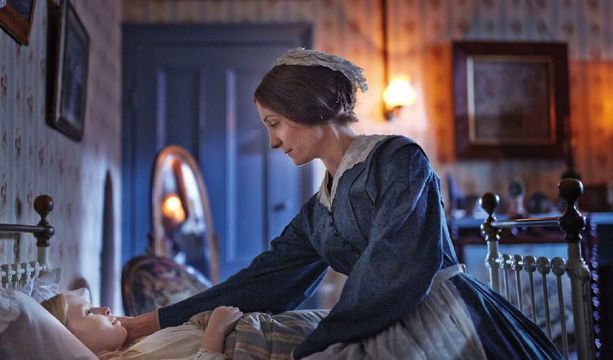
Dark Angel Star Joanne Froggatt on Playing England’s First Serial Killer
Anna Bates, what have you done?
As 19th-century poisoner Mary Ann Cotton, Joanne Froggatt leaves stately Downton Abbey behind for a far nastier world—and a much darker role. It’s a departure for the delightfully sunny Froggatt, who earned raves and awards for playing Anna, the hard-luck downstairs maid with a heart of gold who was tirelessly loyal to Lady Mary over six seasons.
Researching the era, female serial killers and, of course, the real-life Cotton—with her terrifying body count—turned into a fascination for the actress: “She’s quite a prolific murderess, really,” says Froggatt, “and I wondered why I’d never heard about her. I think maybe because she’s a woman, people didn’t want to believe that she did all these terrible things.”
BHT caught up with Froggatt while she was visiting her parents’ home in the moors of North Yorkshire—an idyllic farm where she was raised. Here, she tells us how Mary Ann was able to dispense so much death from the spout of a teapot. Plus, we find out why the Victorian era was just the time for these murders, how the invention of life insurance made it all possible and even the current status of the much-rumored Downton movie.
British Heritage Travel: North Yorkshire is a beautiful place to grow up. What made you decide to leave it behind and pursue an acting career?
Joanne Froggatt: None of my family are in the entertainment industry at all, but my parents always taught my brother and me to have a go at things. So I just followed that mind-set. Acting is all I ever wanted to do, really. I don’t even know where I got it from. My brother and I used to watch a lot of films together when we were kids. I just always wanted to be [part of] what was happening on the films, even before I understood what it was. It’s all I really remember wanting to do, to be in films and TV.
BHT: You started very young. Wasn’t one of your first roles on Coronation Street?
JF: Yes, when I was 16. I’d done one professional job when I was 15, when I was still in school, an extra in something. But Coronation Street was my first. I’ve supported myself financially since I was 16 through acting. I left school eight months before and then landed that job, and it was a fantastic learning curve for me because, at that time, 20 years ago, there wasn’t this celebrity culture that we have now. I was working with really good actors, and they taught me to really put the homework in because there’s no rehearsal time or anything on that kind of show. If you want to not make a fool of yourself, you have to do your homework and you have to rehearse yourself.
[caption id="TheBritishHeritageTravelInterview_Feature" align="aligncenter" width="847"]
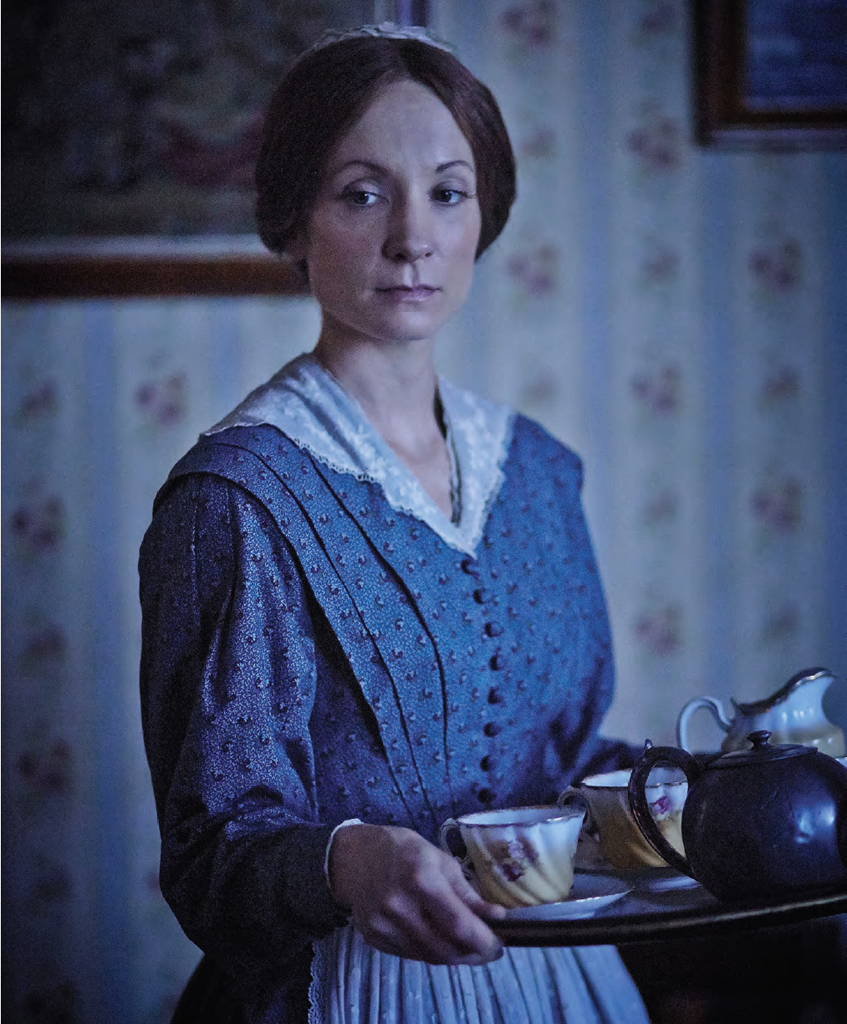
BHT: Twelve years later, after some really impressive roles, you were cast as Anna on Downton Abbey. Did you know the show would become such a worldwide sensation from the start?
JF: No. You never know what’s going to be a hit. You just don’t. You absolutely know if something’s good or not, but it doesn’t necessarily mean that it’s going to be the right timing or marketed in the right way. Will people love it? What’s going on socially in the world at the time? It’s all things that are out of your control. I think we all thought we were making a quality show when we started and we were all very proud of it, but it had this snowball effect.
Definitely its popularity in America was a huge part of spreading the word across the world. The Emmys and the Golden Globes and the SAGs and all these exciting things just put the show on a platform to the world, really. We will be forever grateful for the support of our American viewers for that because it absolutely pushed the show to another level.
None of us knew how many [seasons] we’d be doing. We signed up for three to start with, which is the most you ever really do in England. It’s not like in the States, where you quite often sign for six to start with, or seven. It’s actually quite rare for a series to go past three or four in England. The fact that we did six was incredible.
“People were asking me what I wanted to do [after Downton Abbey]. I jokingly kept saying, ‘Oh, I don’t know, play a murderer or something completely different.’ ”
BHT: Did you know that Anna would become such a heart of the series when you began?
JF: I loved Anna as a character. I liked her in the first episode, and I just connected with her. I was only ever going in to audition for Anna, and it’s certainly Anna that leapt off the page for me personally. I felt a real connection with her, and I’d not played somebody who was really good and lovely before. It was nice making her this wonderful person, but also giving her a strength. She wasn’t a wishy-washy, let-people-walkall- over-her kind of person. She had to be almost stronger to follow her mind-set of being a decent person, standing up for what she believes in and the people she loves. I wanted to play that kind of person.
Then it just developed. Brendan [Coyle] and I never imagined that Anna and Bates would become such a popular couple, because they weren’t the glamorous upstairs couple going to glamorous parties and all the rest of it. So it was touching that what I think people loved about Anna and Bates’ story is the true love that came from a mutual respect for each other. There’s a very slow-burn romance and support for each other, and it made people root for them. We were very pleasantly surprised that both those characters became such a big part of the Downton house. I couldn’t have wished for more from her, really, as a character.
[caption id="TheBritishHeritageTravelInterview_img1" align="aligncenter" width="581"]
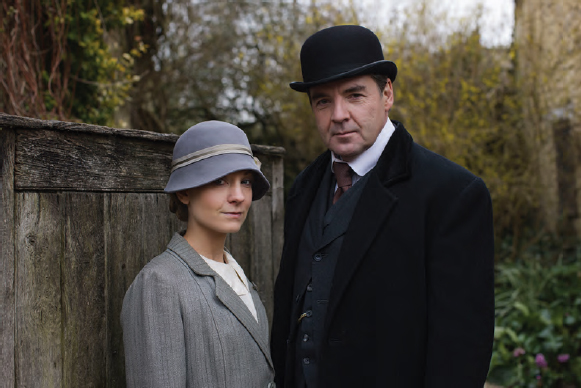
CARNIVAL FILM & TELEVISION LIMITED
BHT: You were offered Dark Angel while you were still working on Downton, and you can’t go much further from Anna Bates than Mary Ann Cotton.
JF: Exactly. When we were finishing season six, people were asking me what I wanted to do next. I sort of jokingly kept saying, “Oh, I don’t know, play a murderer or something completely different.” Then I was sent the script for Dark Angel and I went, “Oh! Well, I better put my money where my mouth is then, because here it is!”
Gwyneth [Hughes], our writer, had done a brilliant job. Mary Ann is an antihero, has done terrible things. How do you make an audience want to watch it? How do we make people want to know what happens to this woman? You meet Mary Ann at the age of 25, having suffered the loss of four of her children from natural causes, and she’s driven mad by grief to a certain extent.
It’s just such a hard life, suffering the loss of children, the possibility of starvation. Women couldn’t work if they had children because there was no one to look after the children. There were just no opportunities for women to change their environment or to change their lives. So the first time she poisoned somebody, her husband, you think, “Oh my God, she’s doing it to save her children, because he’s got life insurance and he had an injury and he can’t work.” They are at a risk of starving, really. So you go, “OK, maybe not the choice I would have made, but…” And then there’s that age-old question of is it nature or nurture? Once she’d done it once, did it just become easier? Throughout the space of our telling the story, the more she does, the more she loses her humanity bit by bit. That’s when she thinks she loses control of herself, and she obviously is on the spectrum of psychopathy, you know? Many women in that era were in the same boat but didn’t do those terrible things. But would she have made those choices if she were living in modern times? Or would she just have been a high-flying businesswoman?
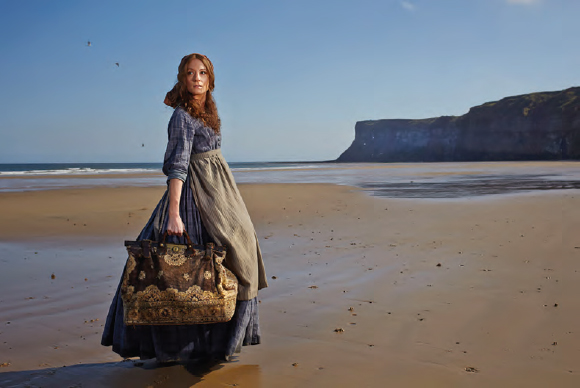
BHT: Tough times. We think of the Victorian era as being uptight and stuffy, but you show the real hardships and pain of the working class then.
JF: Yeah, and then she loses more children. An incredibly hard life. I was doing research into her and into the time period as well. Even though I’m saying obviously most people wouldn’t make the choices Mary Ann made in that same situation, but it was actually known as the “Arsenic Era”—because there were so many instances of unwanted children being poisoned with arsenic. It had become quite a big problem because, obviously, there’s no birth control. A family gets on the bread line, literally barely enough to eat, starving, and then they end up with another unwanted pregnancy. Many women, horrific as it sounds…those babies would disappear, you know? Times were that hard. It’s very difficult in the Western world now to comprehend that.
[caption id="TheBritishHeritageTravelInterview_img3" align="aligncenter" width="763"]
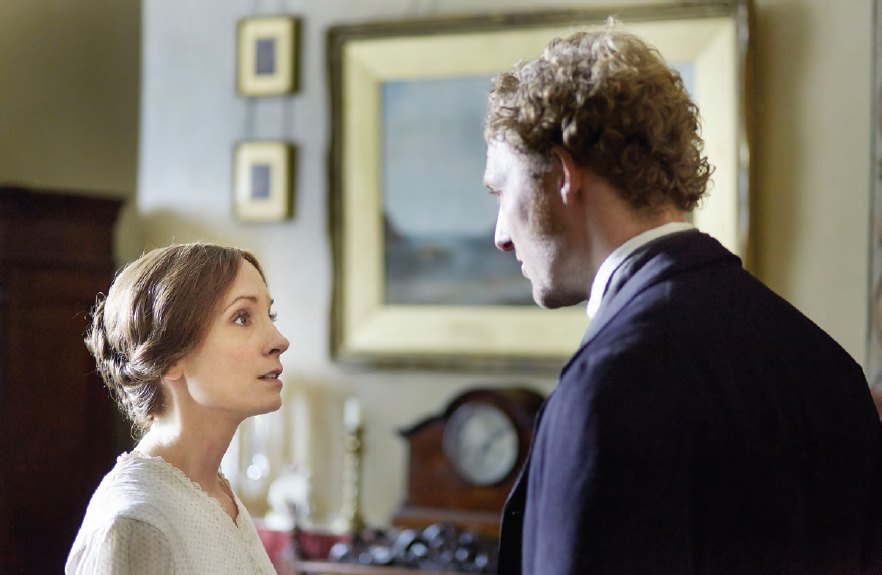
BHT: You wonder how could anyone possibly get away with killing this many until you realize infant mortality was incredibly high back then.
JF: Medical science wasn’t what it is today, and people didn’t know about germs. People died a lot younger and it was very common to have infant death. Also, people moved around a lot in her time especially, because it was the start of the Industrial Revolution in that part of the country, in many parts of England. It was normal for families to move from town to town, to just go where the work was for the husband, to a different mill or mine. If she had stayed in one place, people might have gone, “Hang on a minute! She got over her husband quite quickly!” But because she was moving around so much, moving to a new community…
There were no autopsies at that time. It was just the start, the very beginning. It was an autopsy that actually caught her in the end. Proved what she’d done. That was the beginning of that medical science. And arsenic was very readily available. It was used in everything.
[caption id="" align="alignnone" width="881"]
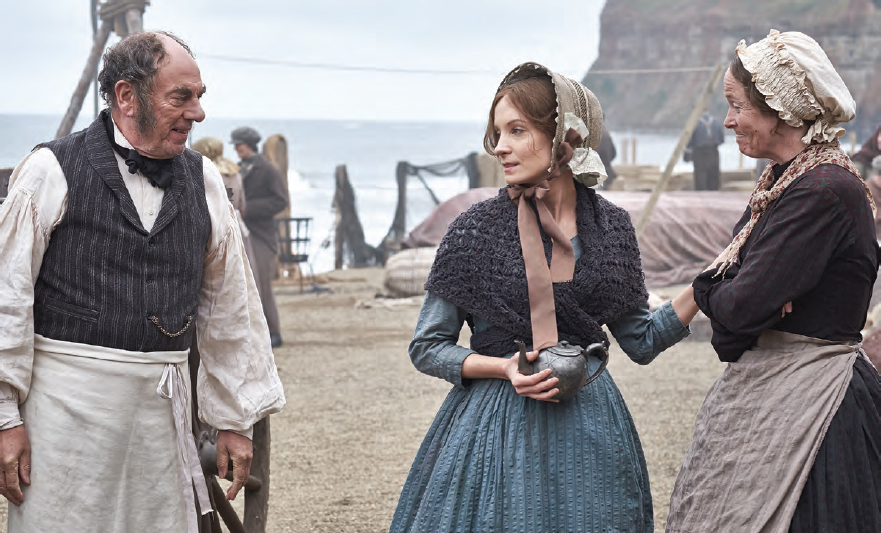
BHT: It was also the start of life insurance, right? If it hadn’t been for insurance, she would have had no motive.
JF: That’s true. When I was doing research about serial killers, there is a common denominator between female killers. There’s not a 100 percent rule, but mostly the majority of male serial killers do it for sexual gratification or very visceral, messy acts. Most female serial killers usually kill for either social or financial gain and prefer very clean, tidy methods. This seems to be a theme running through many eras, for female serial killers, of which there are very few. They are very few and far between, and their chosen way of death is usually poisoning, smothering or overdose.
In Mary Ann’s case, it certainly was for financial and social gain, and there are times in the story where you think, “Wow, you’ve almost got everything you wanted now!” It’s just because of her mind-set and because she’s on that spectrum of psychopathy—she can’t stop herself taking risks. It’s never quite enough.
BHT: At one point, she marries into a higher class, which was an amazing feat.
JF: Yes, exactly, and then you think, “Wow, you’ve done it.” But she still pushes it and ruins it for herself. Psychopaths obviously don’t feel emotions in the same way. They don’t feel empathy. They’re often quite promiscuous because they don’t have an emotional attachment to sex, and they often have to take risks—for the buzz of risk-taking is something they can feel and experience and enjoy.
Yeah, the times where she is upset, I had to work out what she’s upset about because she didn’t emote in any model that you and I would. She gets upset about losing control, about losing the status. That’s important to her. They’re the things that really break her heart, especially when she’s lost so much of her humanity along the way.
BHT: Yet I was really sympathizing with her, which was strange since she was doing such terrible things. I think it was because of her refusal to accept her poverty.
JF: When I read the script I did the same thing. God, I found myself reaching for this woman. Why am I reaching for this woman that did all these awful things? And again, Gwyneth did a great job at not making her a monster. By all accounts, she didn’t start off as one. She ended up down that road, but I have to say, it’s like, wow, she just didn’t want the life that was forced upon her. She didn’t have options to change it. Like I said, if she was living now, would she have done those things? Who knows?
BHT: Period dramas often portray one segment of society—the part that’s rarefied and glamorous. Dark Angel is not like that.
JF: Yeah, it’s a different take on a period drama, isn’t it? It’s not what you expect from a period drama. [Laughs]
BHT: It’s just, what, 70, 80 years before the setting for Downton? Yet it feels so different.
JF: There’s still that level of poverty, or near that level of poverty, in many places in the Downton era as well. Because of the Industrial Revolution, there were jobs and women were campaigning to get the vote and they were starting to talk about a system to help the poor. Socially, things were changing and moving. A person working as a servant was in a very well respected career, and it was a career. A very safe career— something people really aspired to. So I think in something like Downton, the cross-section in the houses have people that are doing very well for themselves.
BHT: They’ve made it.
JF: Yeah, in terms of what was available to those people at that time.
BHT: Fans are clamoring for another visit to Downton Abbey. Any word on a possible movie?
JF: Oh, I don’t know! I honestly don’t. We’re struggling to get everybody together. I think we were all really hopeful and now I have no idea if it’s going to happen or not. I guess time will tell.
BHT: People are still pinning their hopes on one comment you made a year ago about how you thought there was a script.
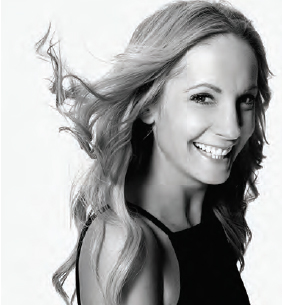
COURTESY OF MASTERPIECE
BHT: So now that you’ve dressed in rags for Mary Ann Cotton, will your next costume drama have beautiful dresses?
JF: I do hope so. I think I’m quite ready to play a Queen now!
This conversation has been edited for length and clarity. Dark Angel premieres on MASTERPIECE on PBS Sunday, May 21. Downton Abbey is available on shoppbs.org.





Comments